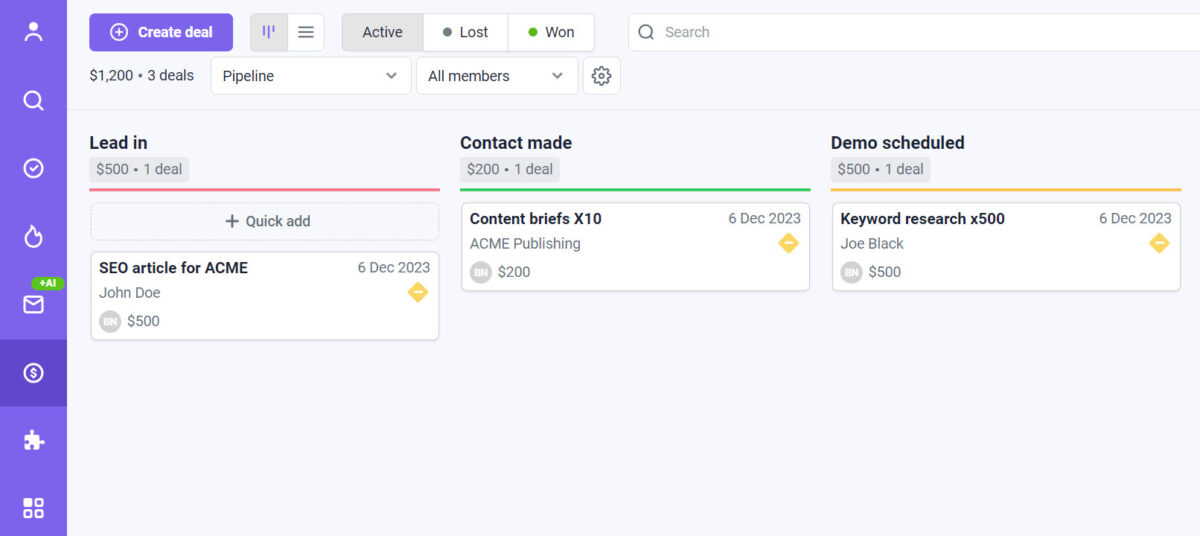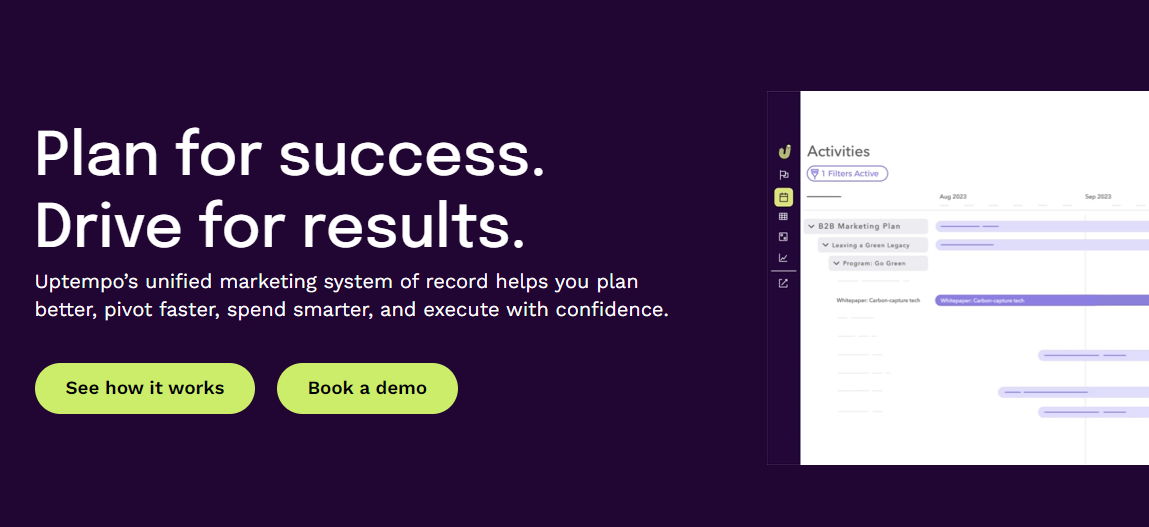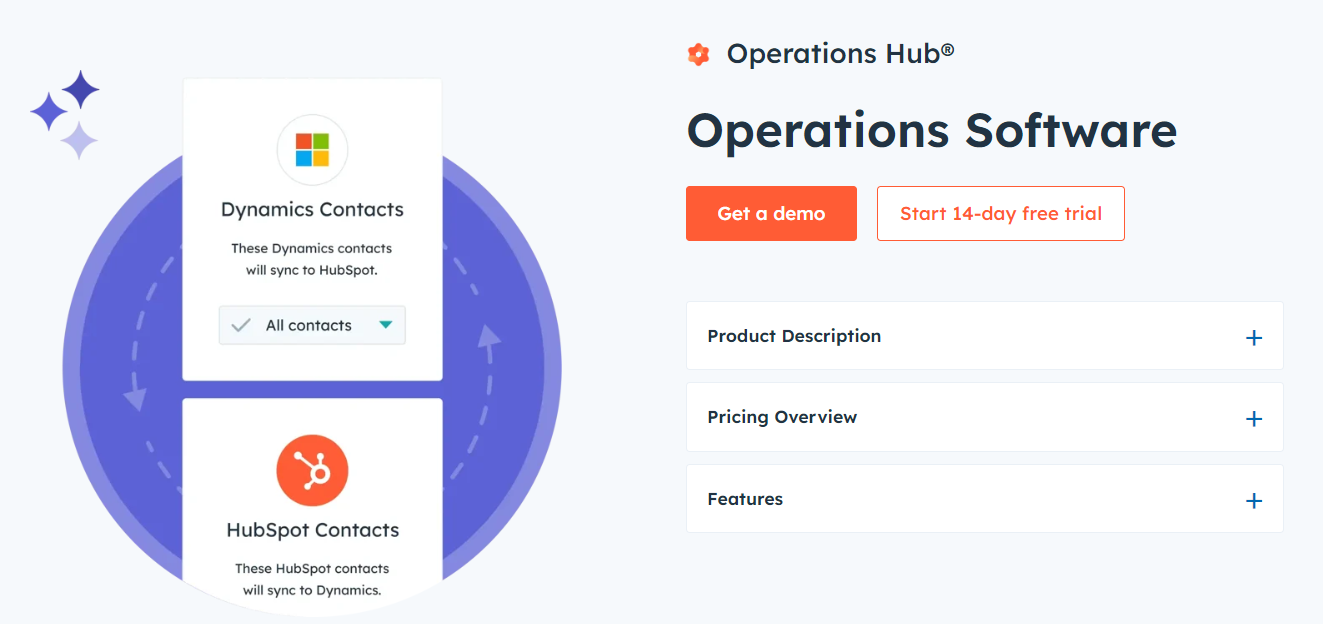Marketing operations play a big role in making sure that your marketing team does its job efficiently.
It involves all the tasks of a marketing team. However, managing marketing operations is not easy as it needs you to manage the entire complex process of marketing. For this reason, you need to streamline your marketing operations.
But how do you do it?
The answer is simple: by following the marketing operation tips that I am going to share in this article.
Introduction to Marketing Operations and Types
Marketing operations (MOps) means all the activities that make the marketing work smoothly. Marketing operations include planning campaigns, optimizing resources, budget planning and implementation, content creation, and process improvement. It is a framework that determines how the marketing team will perform their tasks.

There are different types of marketing operations, such as:
- Campaign Management: This type of marketing operation involves planning, executing, and analyzing the success of marketing campaigns. Defining campaign objectives, target audience selection, and promotional content creation are part of this category.
- Marketing Automation: Automating workflows and implementing the best marketing automation tools and technology in appropriate places are considered marketing automation.
- Data Management: This type of marketing operation includes collecting, analyzing, and managing data about customer behavior, market trends, and campaign performance.
- Content Management: This is an important aspect of marketing operation where you strategize, create, organize, and distribute content.
- Lead Management: Lead generation, lead scoring, and lead nurturing are all part of this marketing operations category.
The Importance of Efficient Marketing Operations
- It enables the systematic use of budget and time
- It helps to reach the right audience with a customized message
- It assists in the planning and execution of high-performing campaigns
- It drives more timely and personalized customer engagement
- It reduces manual efforts by automating repetitive tasks
- It provides accurate and timely data for informed decisions
Benefits of Marketing Operations

- Marketing operations help businesses to identify their targeted audience and reach them effectively by leveraging market research.
- It systematically collects the necessary data and analyses them to develop campaign strategies and monitor their campaign performance.
- This allows companies to identify the latest and emerging trends to refine strategies accordingly.
- It adopts the latest marketing operations tools and automation platforms that ultimately benefit the entire organization.
- MOps improves collaboration between departments and helps to stay competitive in the marketing landscape.
- By focusing on resource optimization and ROI maximization, it can generate a higher ROI in terms of marketing expenditure.
- It optimizes conversion funnels to drive more traffic to your website and get more visitors converted into customers.
- Marketing operations increase the visibility of the campaigns and reach a wider audience.
- It also helps to track project deliverables to ensure timely completion of marketing projects.
Common Challenges in Marketing Operations
- Having inconsistent and low-quality data
- Lack of integration between multiple data platforms
- Investing budget in the necessary fields
- Budget constraint for a certain marketing project
- Keeping track of all the simultaneous campaigns
- Extracting actionable insights from large volumes of data
- Creating relevant and engaging content
- Continuously producing marketing content for all platforms
- Identifying trends accurate for their marketing domain
- Adopting the right technology for the team
- Having the team trained to properly utilize the technology
- Collaboration between the marketing team and other teams
- Scaling up marketing activities according to changing marketing conditions
Tips for Streamlining Marketing Operations

Here are some common marketing operation tips for all the marketers and agencies who can implement them in their MOps process.
Establish Clear Goals and Objectives
To streamline your marketing operations, you must be sure of your marketing goals and objectives. These should be aligned with your business goals to become the foundation for streamlined operations.
Marketing Automation
You need to invest in marketing operations tools and technology that will help you automate the marketing operations. Thus, you can automate repetitive tasks like email marketing, lead nurturing, and social media posting.
Centralize Data Management
You should use a centralized system like CRM to store and manage customer data. This will ensure consistency and accessibility across teams.
Standardize Organizational Processes
For the common marketing tasks, you need to develop standardized processes and workflows. It not only reduces confusion and errors but also accelerates how fast you can complete a project.
Invest in Integrated Technology
While choosing tools, emphasize those that can be integrated. Thus, you can prevent silos of information and enable smooth data flow between various applications.
Conduct Regular Training
Implementing new tools is not enough; your team should be capable of handling those applications. Hence, you must provide training to your marketing team on new tools, technologies, and processes so that they can fully utilize the resources.
Focus on Collaboration
As marketing teams need to work closely with other departments of your organization, there should be open communication among the teams.
Analyze Performance Metrics

Certain KPIs can define the success of your marketing campaigns. You need to regularly track and analyze those KPIs to measure the success of marketing efforts and optimize ongoing campaigns.
Prioritize Customer Experience
Focus on the customer experience and work on improving it. When you have this in mind, you can get an improvised marketing policy that will ultimately improve marketing operations.
Audit and Optimize Regularly
You should regularly audit the marketing processes to identify areas for improvement. Accordingly, you should optimize the marketing operations.
Prioritize Content Development
For any marketing team, there should be a continuous supply of marketing content. That’s why you need to prioritize content development to streamline marketing operations.
Stay Updated about Industry Trends
Always stay informed of industry trends and technological advancements. Thus, your team can adopt new tools and strategies for further streamlining.
Implement A/B Testing
For any kind of marketing campaign, you must do A/B testing before the final decision. With this, you can compare two versions of the marketing campaign to find the better one.
Empower Your Marketing Team
Members of your marketing team should have enough power to make decisions and be accountable for their decisions. This will increase their creativity, productivity, and innovation power.
Measuring and Monitoring Efficiency

If you want to know how your marketing operations are functioning and whether these tips have improved the process of your organization, you need to measure the efficiency. Various sales and marketing-related metrics help you monitor how your MOps are performing.
But before choosing the KPIs, you need to confirm what you want to measure and how you want to measure them. Here are some popular KPIs that are commonly used to monitor marketing operations efficiency.
- Marketing Return on Investment
- Marketing Efficiency Ratio
- Customer Acquisition Cost
- Resource Utilization Rate
- Content Engagement Metrics
- Customer Satisfaction Score
- Website Traffic Quality
- Marketing Pipeline Velocity
- Lead To Customer Conversion
- Marketing Cost Per Lead
- Time To Market
- Click Through Rate
- Bounce Rate
Future Trends in Marketing Operations

Hyper-Personalized Marketing
There will be a rise in predictive analysis that will assist in proactively delivering relevant experiences by anticipating customer needs. These marketing campaigns will be highly personalized with the help of AI and ML technologies.
More Automation and Tool Integration
All the repetitive tasks of marketing operations will be automated, including content scheduling, email marketing, and reporting. Thus, marketers will get more time to invest in strategic thinking and creative work. Also, there will be more use of tools that support integration.
Reliance on First-Party Data
As time progresses, third-party cookies will lose their popularity. Brands will focus more on first-party data and contextual targeting to display their marketing efforts to their target audience. There will also be an increase in customer loyalty programs and zero-party data collection for lead generation.
Focus on Data Privacy
While delivering personalized messages to the audience, the data privacy of the customers will be emphasized as well. There will be a rise in the use of technologies that protect customers’ data privacy.
Interactive Customer Experiences With AR and VR
With Metaverse and similar immersive technologies, the marketing world sees an endless possibility of engaging customers with interactive experiences. Both AR and VR will help to create memorable customer experiences, blurring the difference between marketing and entertainment.
AI-Powered Content Creation
Using generative AI tools, the marketing operations team will streamline tasks like video editing, copywriting, and music composition. However, marketers should be careful about not generating content that is robotic and monotonous.
Marketing Operations Tools
Here are some powerful solutions that individuals and businesses can use to level up their marketing operations game.
#1. IntelligenceBank
Switch to IntelligenceBank, and you will get rid of your dependency on several marketing tools. It brings digital asset management, marketing content production, and creative collaboration — all under the same umbrella.

Its central asset hub is the place where you can store and share images, audio, video, documents, and URLs. There are also approval workflow and collaboration tools to streamline the campaign planning process.
Moreover, you can assign marketing tasks and visualize the projects in different views. It offers creative templates to automate the creative production of your organization. The software also ensures brand compliance by keeping a record of creative approvals and asset usage.
| ✅ Pros | ❌ Cons |
|---|---|
| Task assignment and project tracking | No unlimited file support for bulk download |
| Integration of legal checklists | UI is not up to the mark |
| Proofing and markups for real-time collaboration | |
| Manage marketing requests |
Pricing: You need to contact the company to get a custom quote.
#2. Uptempo
Uptempo offers a unified system where you can properly plan your marketing operation tasks and execute them confidently. It also helps with smart budget expenditure. Even if you are working in a challenging market, it assists you in connecting your campaigns with the plan, projects, and performance.

From creating campaign briefs to forecasting performance, from fund allocation to creative work monitor, this platform is capable of them all. You can use it to automate budget approval workflows and generate custom financial reports. Moreover, its digital asset library can be accessed quickly.
| ✅ Pros | ❌ Cons |
|---|---|
| Activity planner for strategy, projects, and budget | Takes time to load |
| Impact modeler to see how planning will turn into execution | Customization is difficult |
| Spend tracking and budget hierarchy | |
| Content creation workflow and resource management |
Pricing: You can book a demo and find out pricing information as you proceed.
#3. Hubspot Operations Hub
Hubspot Operations Hub helps your marketing operations by syncing all your apps and data in one place. It automates every marketing process to remove inefficiency from the workflow and offers your team more time to focus on more important tasks.

The software enables you to manage your marketing team. You can allow each employee access to the assets they need for their job role. You can even audit user activity and change ongoing permission from the same place. Its real-time data sharing and consistent reporting help with informed decisions.
| ✅ Pros | ❌ Cons |
|---|---|
| Compelling visualization of data | Has a steep learning curve |
| User-friendly advanced calculations | |
| Custom automation for every process | |
| Clean customer data for accuracy |
Pricing: You can use this software for free. Paid plan is available for individuals at $18/month. Business plans start at $800/month.
FAQs
To run marketing operations, you need to perform various marketing activities and oversee the performance to ensure they align with your business objectives.
Marketing operations can be optimized through automation, integrating technology into the workflow, and making personalized data-driven decisions for marketing campaigns.
An example of marketing operation is planning for video content, making a content calendar, writing scripts for the video, producing and editing the video, and uploading the video on time on various marketing and social media platforms.
Final Words
Following the marketing operations tips, you should be able to increase the efficiency of your marketing efforts and reach a larger audience. Do not forget to look out for the challenges that might come your way and be prepared for them.

